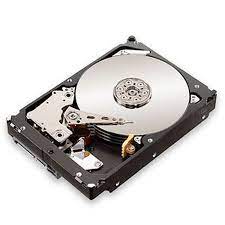
Introduction of laptop hard disk
A laptop hard disk is a type of storage device used in laptops and other portable computing devices to store and retrieve digital data. The laptop hard disk is a non-volatile storage device that uses magnetic storage to store data, similar to a desktop hard disk.
Laptop hard disks are typically smaller in physical size and have a lower storage capacity than desktop hard disks. They are designed to fit into the smaller form factor of laptops and are more resistant to physical shock and vibration to protect the data stored on them.
Laptop hard disks are available in various storage capacities ranging from a few hundred gigabytes to several terabytes. They connect to the laptop motherboard via a SATA or PCIe interface and can be easily replaced or upgraded by the user or a technician.
With the advent of solid-state drives (SSDs), which offer faster read and write speeds, better durability, and lower power consumption, laptop hard disks are gradually being replaced by SSDs. However, laptop hard disks remain a cost-effective option for those who need large storage capacities at a lower price point.
Types of Laptop Hard Disks
There are two main types of laptop hard disks: traditional hard disk drives (HDDs) and solid-state drives (SSDs).
Hard Disk Drives (HDDs):
HDDs are the older and more traditional type of laptop hard disk. They store data on spinning magnetic disks or platters, with read/write heads accessing the data by moving across the platters. HDDs are available in various storage capacities and are relatively cheap compared to SSDs. However, they are slower in terms of read/write speeds and are more prone to physical damage due to their moving parts.
Solid-State Drives (SSDs):
SSDs are a newer type of laptop hard disk that use flash memory to store data. They do not have any moving parts, which makes them faster, more durable, and less prone to damage from physical shocks or vibrations. SSDs are available in various storage capacities and are becoming more affordable, although they are still generally more expensive than HDDs.
There are also hybrid hard drives (HHDs) that combine both SSD and HDD technologies to provide a balance of speed and storage capacity. These drives have a small amount of built-in flash memory that acts as a cache to store frequently accessed files, while the bulk of the data is stored on the spinning disk.
How to Choose the Right Laptop Hard Disk
When choosing a laptop hard disk, there are several factors to consider based on your needs and preferences:
Storage capacity:
Consider how much storage capacity you need for your files, applications, and media. If you work with large files or media content, you may need a larger storage capacity.
Performance:
Consider the read and write speeds of the hard disk, especially if you frequently transfer large files or use resource-intensive applications. SSDs generally offer faster performance than HDDs, although they are usually more expensive.
Durability:
Consider how durable the hard disk is, especially if you plan to use your laptop in rough or outdoor environments. SSDs are generally more durable than HDDs due to their lack of moving parts.
Price:
Consider your budget and choose a hard disk that offers the best value for your money. HDDs are generally cheaper than SSDs, although prices for both types are constantly changing.
Compatibility:
Ensure that the hard disk is compatible with your laptop model and meets the interface requirements (SATA, PCIe, etc.) of your laptop’s motherboard.
Brand reputation:
Choose a reputable brand with a good track record for quality and reliability. Consider reading reviews and ratings from other customers to get an idea of the product’s performance and durability.
In summary, when choosing a laptop hard disk, consider your storage needs, performance requirements, durability, budget, compatibility, and brand reputation to make an informed decision.
Also Read:- How to Burn Out Bad Cholesterol From Your Body
Maintaining a Laptop Hard Disk
To ensure optimal performance and longevity of your laptop hard disk, it’s important to follow some maintenance tips:
Regularly scan for viruses and malware:
Use a reliable antivirus program to scan your laptop and hard disk for viruses and malware regularly. These harmful programs can damage your hard disk and corrupt your data.
Free up disk space:
Regularly remove unnecessary files and programs to free up disk space. This will help optimize your laptop’s performance and prevent storage-related errors.
Defragment the hard disk:
Defragmenting the hard disk can help improve performance by organizing data more efficiently. However, this may not be necessary for SSDs as they work differently than HDDs.
Back up important data:
Regularly back up important data to an external hard drive or cloud storage to protect against data loss due to hard disk failure or other issues.
Keep your laptop cool:
Overheating can damage your laptop’s hard disk and affect performance. Keep your laptop cool by using a cooling pad, ensuring proper ventilation, and avoiding using your laptop on soft surfaces that block airflow.
Handle with care:
Laptop hard disks are sensitive to physical shocks and vibrations. Handle your laptop with care and avoid dropping or bumping it.
Following these tips can help maintain the performance and longevity of your laptop hard disk, protecting your data and ensuring a smooth computing experience.
Conclusion
In conclusion, a laptop hard disk is an important component of your laptop that stores and retrieves your digital data. When choosing a laptop hard disk, consider factors such as storage capacity, performance, durability, price, compatibility, and brand reputation. To ensure optimal performance and longevity of your laptop hard disk, regularly scan for viruses and malware, free up disk space, defragment the hard disk (if necessary), back up important data, keep your laptop cool, and handle it with care. By following these tips, you can protect your data and ensure a smooth computing experience with your laptop.